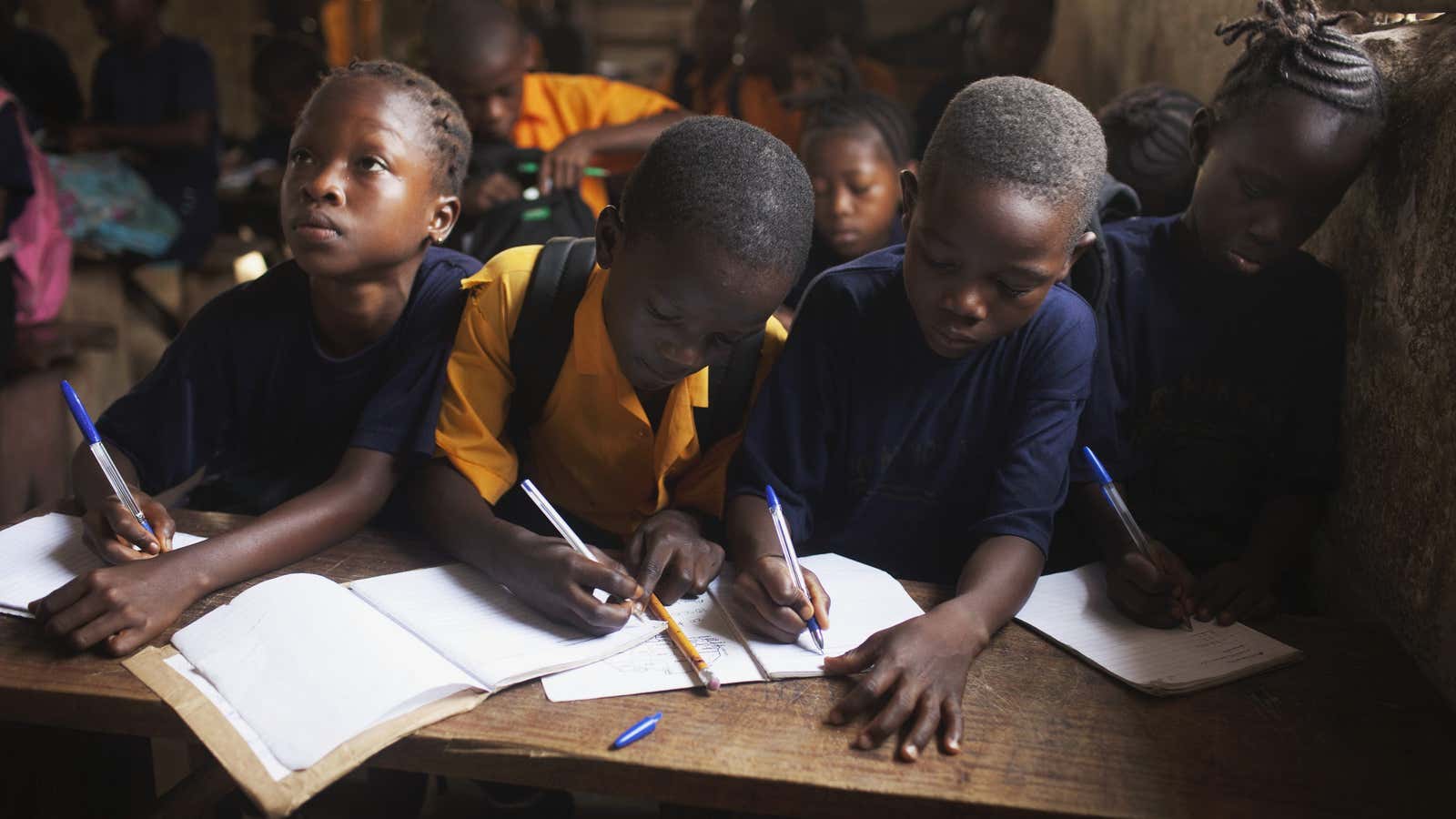At last year’s United Nations summit on sustainable development, world leaders vowed to provide “free, equitable, and quality” primary education for all children, by 2030. But for millions of kids, it will not come in time—and probably not even in the next 50 years.
The Sept. 5 Global Education Monitoring (GEM) Report by United Nations Educational, Scientific and Cultural Organization (UNESCO) shows that economic inequality will keep the world from achieving education for all anytime soon. The report uses past trends to project when different countries will achieve ”universal education,” defined as 100% of children enrolled in school. Its findings are grim: The world’s poorest countries will reach universal primary-school education more than a century after the richest nations.
Low-income countries such as Burundi, Central African Republic and Ethiopia are predicted to achieve universal primary education in the year 2100. That’s over 100 years after high income countries, such as Russia, the United States, Sweden and the Czech Republic, which all achieved universal primary education by 1970.
India is predicted to achieve universal primary education by the year 2050, ten years after Brazil and 45 years after China. Saudi Arabia and South Africa will both achieve universal primary education in 2030.
In many countries, conflict has been a major obstacle to the spread of education. Nigeria, where terror group Boko Haram has targeted hundreds of schools and teachers, is expected to achieve universal primary enrollment by the year 2070. Syria, wracked by civil war, could achieve universal primary education by 2060, the GEM report predicts. (Syria actually achieved universal primary enrollment in 2001, but civil war caused primary net enrollment to fall 71% in 2013.)
The importance of basic schooling cannot be exaggerated. Primary education levels have a measurable impact on all other social, political, economic and cultural conditions in a country. As the report points out, in countries such as Ethiopia, Malawi and Uganda, increases in primary school enrollment from the mid-90s on led to a marked reduction in women’s ideal family size and desire for high fertility.
Primary education also impacts political participation. A 2014 study of 27,000 people in emerging African democracies, cited in the GEM report, found that people with primary education were slightly more likely to attend community meetings, than those who had never attended school. Primary and secondary education also gives future farmers greater knowledge about sustainable food production, impacting the environment.
Girls, marginalized populations and displaced people tend to lag even further behind. In 2014, only 63% of all countries surveyed in the GEM report had achieved gender parity in primary education, while populations considered “indigenous” often scored lower on education indicators such as enrollment rates. According to March 2016 data from the United Nations High Commissioner for Refugees and UNESCO, one in every two primary school-age refugee children is out of school, missing crucial years of education and development.
